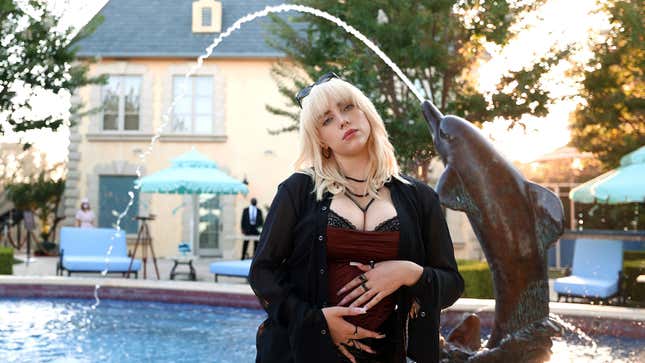On Happier Than Ever, Billie Eilish Takes Us to the Edge of Burnout
Not since the days of grunge has disenchantment been such effective fertilizer for mainstream music
EntertainmentMusic

If we are in the summer of our discontent—more lukewarm than hot-vax thanks in no small part to Delta blues—then Billie Eilish’s Happier Than Ever is the album for the moment. Which is ironic, not just on account of its title (itself a betrayal of the audaciously chill, frequently maudlin music within) but because the record is an account of one singular 19-year-old pop star’s growing disillusionment with that which she once desired or is supposed to have.
There’s a line from Happier’s opening cut “Getting Older” that I’ve already seen quoted all over the place since the set’s release on Friday, probably because it’s the first real ear-grabber on the album. It comes in after about a minute and a half of Eilish warbling self-consciously over a muffled keyboard being played like a trampoline: “Things I once enjoyed/Just keep me employed now/Things I’m longing for/Someday, I’ll be bored of/It’s so weird/That we care so much until we don’t.” This coming from someone who can’t be heard over the scream-singing crowds at her own concerts. This coming from someone who has redefined pop stardom (what it looks and sounds like) to a magnitude not seen at least since Lady Gaga (whose redefinition, to be precise, was a consciously derivative one, and as such may not qualify her as an Eilish forebear after all). This coming from someone who won a Record of the Year Grammy for an ostensibly similarly themed song, “Everything I Wanted” (“I had a dream/I got everything I wanted/Not what you’d think/And if I’m being honest/It might’ve been a nightmare”). If the American dream ever fit into Eilish’s scheme for cultural domination, Happier is what happens when insomnia sets in.
There’s something in the air, and like some kind of cultural drain tarp, Happier captures it. It’s hard to imagine an album with a higher barometric pressure—Happier manages to be summery (suffocating synths and more than a couple reggae grooves, which is infinitely more than I was expecting) without being sunny. It’s oppressive, a soundtrack for dog days whose release timing was a small act of artistry in itself—it dropped July 30.
-

-

-

-

-

-

-

-

-

-

-

-

-

-

-

-

-

-

-

-

-

-

-

-

-

-

-

-

-

-

-

-

-

-

-

-

-

-

-

-








































